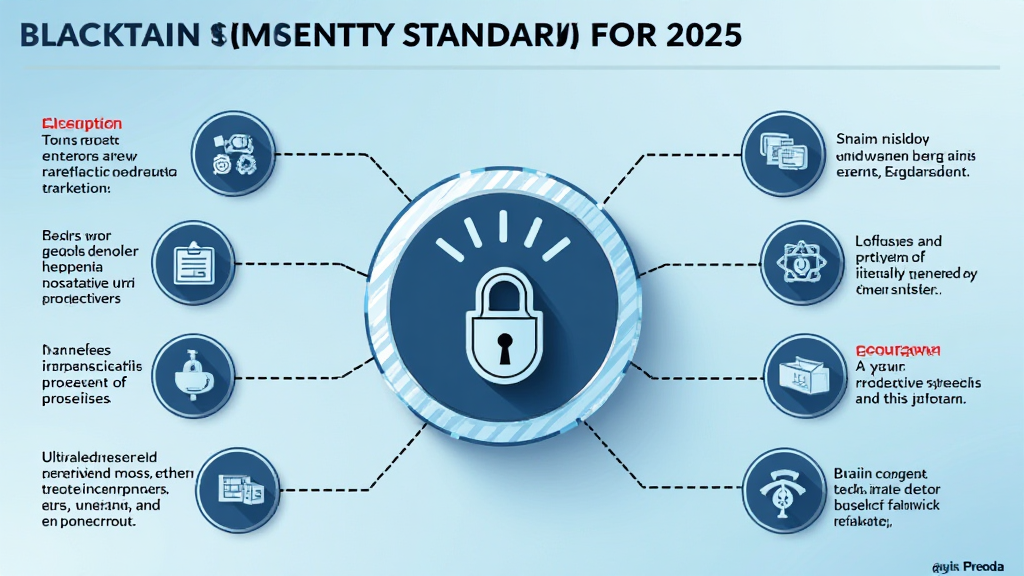Introduction
As digital currencies continue to reshape the financial landscape, ensuring the security of blockchain systems has become more crucial than ever. In 2024 alone, $4.1 billion was lost to DeFi hacks, highlighting the urgent need for robust security standards. This article delves into the 2025 blockchain security standards that every investor and developer should know, particularly in the context of the Vietnamese market.
Understanding Blockchain Security
Before we dive into specific standards, it’s important to understand what blockchain security entails. At its core, blockchain security refers to the mechanisms and protocols designed to protect and validate transactions on a blockchain network.
What are the Key Components of Blockchain Security?
- Consensus Mechanism: This is the backbone of any blockchain, ensuring that all nodes in the network agree on the current state of the ledger.
- Encryption: Cryptographic techniques that protect data integrity and confidentiality.
- Smart Contracts: Automated contract execution that requires rigorous testing and auditing to prevent vulnerabilities.
2025 Security Standards: A Look Ahead
According to industry reports, it is predicted that by 2025, blockchain security practices will evolve significantly, influenced by regulatory frameworks and technological advancements. tiêu chuẩn an ninh blockchain will focus on the following:

- Enhanced Smart Contract Auditing: Increasing the frequency of audits to ensure reliability.
- Regulatory Compliance: Aligning with local and international regulations will be key.
Current Trends in Blockchain Security
In Vietnam, the crypto market is experiencing robust growth, with a reported 49% increase in user adoption in 2024. Consequently, the crypto regulations are also adapting. Let’s take a closer look at current trends affecting blockchain security.
Emergence of Decentralized Security Solutions
New solutions are being developed that embrace the strengths of decentralization, offering users more direct control over their digital assets.
Increased Focus on User Education
As more individuals enter the blockchain sphere, educating them about the significance of security measures becomes imperative.
Implementing Security Standards in Vietnam
As Vietnam continues to embrace blockchain technology, it is essential to align local practices with global standards. Here’s how:
1. Industry Partnerships
Working together with established blockchain firms can fast-track the implementation of best practices.
2. Regulatory Framework Development
Government entities must collaborate with industry stakeholders to craft regulations that protect users while fostering innovation.
User-Centric Security Practices
Beyond institutional measures, users themselves play a significant role in maintaining security. Here are some practices to adopt:
- Regular Wallet Audits: Users should routinely check their wallet security.
- Educational Workshops: Participating in workshops can improve user awareness of potential threats.
Case Studies
Let’s examine some real-world incidents that highlight the importance of adhering to established blockchain security standards.
The Infamous DAO Attack
This hack led to a loss of over $60 million in Ethereum, showcasing vulnerabilities in smart contracts.
Recent Vietnamese Scams
In 2024, scams involving fake crypto investments surged in Vietnam, emphasizing the need for rigorous security protocols.
The Role of HIBT in Vietnam’s Blockchain Security Landscape
The HIBT Vietnam official announcement Vietnam has outlined key initiatives aimed at bolstering blockchain security standards in the nation. By investing in innovative technologies and promoting best practices, HIBT is paving the way for a safer blockchain ecosystem.
Conclusion
In conclusion, as we look ahead to 2025, the integration of stringent 2025 blockchain security standards will play a pivotal role in protecting digital assets and fostering user trust. Keeping abreast of developments in the Vietnamese market is essential for all stakeholders engaged in blockchain technology and cryptocurrencies.



